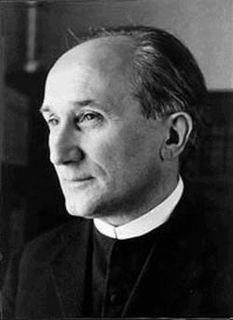A Quote by Mahatma Gandhi
In the application of Satyagraha, I discovered, in the earliest stages, that pursuit of Truth did not admit of violence being inflicted on one's opponent, but that he must be weaned from error by patience and sympathy. For, what appears to be truth to the one may appear to be error to the other. And patience means self-suffering. So the doctrine came to mean vindication of Truth, not by infliction of suffering on the opponent but one's own self.
Related Quotes
Error is a supposition that pleasure and pain, that intelligence, substance, life, are existent in matter. Error is neither Mind nor one of Mind's faculties. Error is the contradiction of Truth. Error is a belief without understanding. Error is unreal because untrue. It is that which stemma to be and is not. If error were true, its truth would be error, and we should have a self-evident absurdity -namely, erroneous truth. Thus we should continue to lose the standard of Truth.
It is too often believed that a person in his progress towards perfection passes from error to truth; that when he passes on from one thought to another, he must necessarily reject the first. But no error can lead to truth. The soul passing through its different stages goes from truth to truth, and each stage is true; it goes from lower truth to higher truth.
Our idealists must own that their velleity to abolish all suffering is most fully expressed in the Fifth Wisdom of Lamaism, the doctrine that teaches that "no durable happiness, nor yet security, for any sentient being can exist while others are a prey to suffering." That truth cannot be questioned and you may take it to heart: in practical terms it means we got ourselves born on the wrong planet - in the wrong universe.
The world always makes the assumption that the exposure of an error is identical with the discovery of truth - that error and truth are simply opposite. They are nothing of the sort. What the world turns to, when it has been cured of one error, is usually simply another error, and maybe one worse than the first one.
Truth is power, but only when one has patience and requires of it no immediate effect. And one must have no specific aims. Somehow, lack of an agenda is the greatest power. Sometimes it is better not to think in terms of plans; here months may mean nothing, and also years. Truth must be sought for its own sake, its holy, divine greatness.
The second noble truth states that we must discover why we are suffering. We must cultivate the courage to look deeply, with clarity and courage, into our own suffering. We often hold the tacit assumption that all of our suffering stems from events in the past. But, whatever the initial seed of trauma, the deeper truth is that our suffering is more closely a result of how we deal with the effect these past events have on us in the present.






































